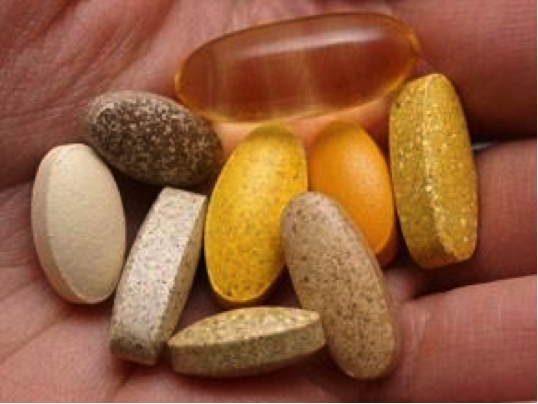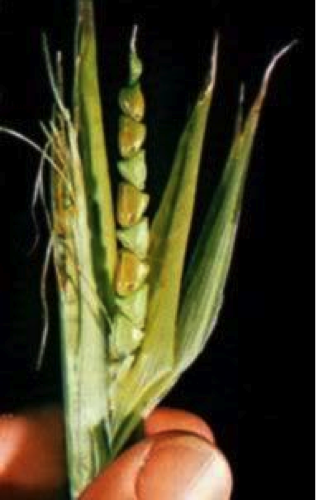A few weeks ago, a collective study was published in the Annals of Internal Medicine regarding multivitamins. Like most children, I was always given a vitamin before heading off to school in the morning. I am even guilty of giving those new gummy vitamins to my children, but after reading the research in this report, I have been forced to rethink blindly administering these pills.
For those of you who didn’t read the study, it basically says that multivitamins have no health benefits at all. In fact, high levels of some vitamins and minerals can be dangerous. Vitamin E and beta-carotene, for instance, have been directly linked to cancer. Excessive doses of Vitamin A can cause liver damage and even death.
Unfortunately, we have been led to believe by pharmaceutical companies that our diet is not adequate. Multivitamins are considered by many to be a “magic pill” of sorts; preventing trips to the doctor and health complications as we age. This study proved across multiple large samples that multivitamins provide no tangible health benefits compared to placebo groups. Yet, multivitamins represent a $28 billion a year industry.
The study recommends that we consume more fresh fruits and vegetables rather than spend our money on vitamins that do nothing for our health. Most of us already know the importance of eating fresh foods whenever possible, but this yet another reason to affirm our demand for fresh food items on a regular basis.
But, are the fruits and vegetables of today as healthy as they once were?
Big Pharma Doesn’t Have It All Wrong
Pharmaceutical companies want us to believe that our diet is no longer adequate to support a healthy lifestyle. They offer a solution in the form of a pill, or chewable, or gummy that makes up for natural deficiencies in the modern diet.
Although I no longer subscribe to the multivitamin solution, the truth is that our diet is less nutritious than it once was. Even the foods in the supermarket are not the same as those enjoyed by people hundreds of years ago.
Research has proven that our diet lacks phytonutrients. These compounds are essential to naturally preventing many common illnesses including cancer, cardiovascular disease, diabetes and dementia. These phytonutrients used to be in our foods but have been stripped away by selective planting practices and more recently by GMOs.
Wild dandelions, for instance, contain seven times the phytonutrients of spinach and were once eaten by Native Americans. Purple potatoes in Peru contain 28 times more anthocyanins (natural cancer fighters) than the common Russet potato in your kitchen.
Corn is another example. The corn we known today hardly resembles the plant it came from. Teosinte is a grassy plant with only a handful of kernels per spike. These kernels are protected in a shell so hard you need to a hammer to open it, but the kernels themselves contain 10 times the protein found in today’s corn.
Why the change?
Mostly for palatability. Many of the phytonutrients contain in these foods are bitter-tasting. To increase taste and profitability, farmers have been selecting only the seeds of the best-tasting crops for next year’s planting season. These better-tasting varieties are lower in many essential nutrients and our nutrition levels have been on a decline ever since.
Farmers have unknowingly reduced the nutrition of our food based on demands from distribution channels and even consumers. It’s not their fault or some conspiracy as much as it is a natural shift in the way produce is cultivated.
Need more proof? A 2004 study conducted by the University of Texas examined USDA nutrition information for 43 fruits and vegetables in 1950 and 1999. The study concluded that there were noticeable declines in nutritional value between the two time periods. Calcium, phosphorus, Vitamin C and iron are just a few of the essential nutrients that have been reduced in the last 50 years.
It appears that our food really is less healthy than it once was.
How can we combat this?
Experts recommend planting crops in soil that has been given time to recover after a harvest. Cycling your garden helps plants absorb fresh vitamins and minerals from the soil. Adding organic compost has a similar effect if cycling your garden isn’t feasible.
Even “heirloom seeds” are hardly a representation of the foods eaten by our early ancestors, but with proper care, these plants can provide us with more essential nutrients than any multivitamin ever can and in a form that is easily digested by the body.
Next time you’re at the store, skip the vitamin aisle. Purchase organic fruits and vegetables instead. Better yet, head to the gardening section and look for ways to improve your existing garden or even start a new one. This is the real way to keep our bodies healthy and something we should all keep in mind this year.




